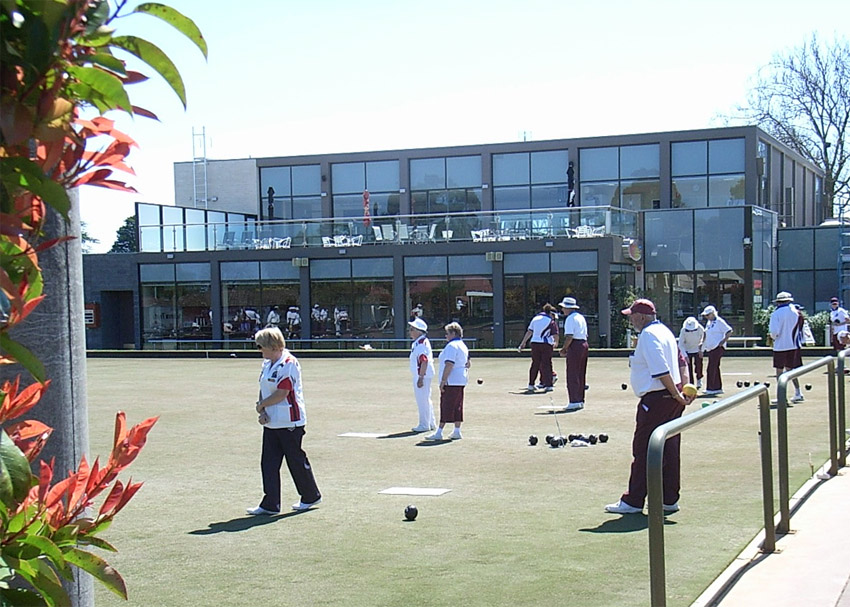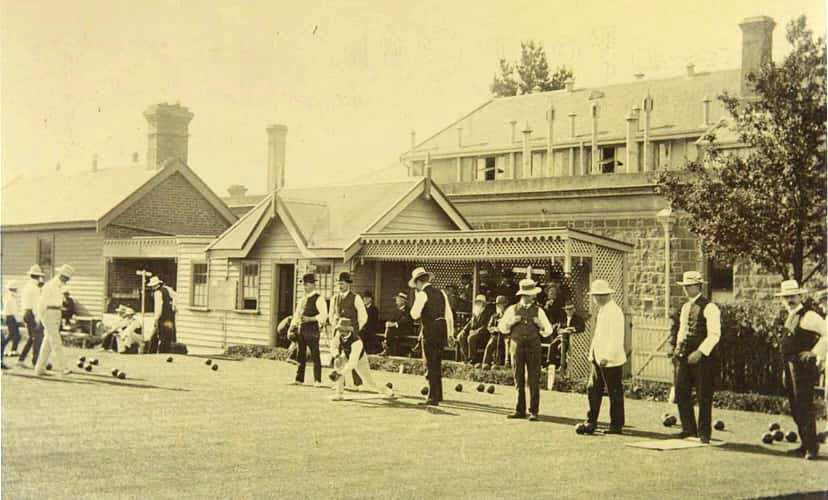Macedon Ranges Shire Council has flexed its muscles, mandating that the historic Kyneton Bowling Club will need to remove its gaming machines to protect the locals, who will be left without a beloved community meeting place.
MRSC drafted a new Gambling Harm Minimisation policy, stipulating that all venues leasing council-owned or managed land will be forced to divest themselves of electronic gambling machines (EGMs) and their licences.
Announced in March, the policy’s ambitious objective is to save the community from the negative impacts of gambling.
The only venue with gaming on MRSC land is the bowling club.
The draft policy was released for community consultation, gathering 31 responses in support but 36 against the idea.
A Council meeting on 28 August tendered the draft policy, which required discussing implications with affected organisations two years prior to the lease expiring, and a transition timeframe.
Councillor Mark Ridgeway offered an amended policy that only required encouraging lessees to plan to divest the EGMs over an agreed timeframe, but Mayor Cr Annette Death argued that it forced “zero obligation” for action, voting with Cr Jennifer Anderson against the amendment.
But Cr Ridgeway’s amended policy was passed and adopted – until Cr Christine Walker called an emergency session on 16 September, the day before council ended sessions prior to the election, claiming she had misunderstood Ridgeway’s motion.
A further tweaked policy was pushed through by Walker, altering the wording of the original, requiring that if the tenant wants to renew the lease, a new lease will clearly state conditions and timing for the divestment of EGMs, within no more than five years and less than ten years.
There was some dissent, but a majority of councillors voted in favour.
Kyneton Bowling Club (KBC) has been serving its community since 1876, making it the oldest bowls club in Victoria to have operated continually on the same site, under the same name.
KBC committee chairperson Paula Adams says the community consultation on the matter was lacking and as the only venue affected, they would have liked more direct involvement.
Adams laments that what’s required to keep the club in operation cannot be done relying on only volunteers and fundraisers. The hospitality operation is not lucrative, and the bistro is contracted for the next few years to an outside operator.

KBC members are said to be “deeply disappointed“ and Adams says the local community will miss out, given club revenue has funded many local sports sponsorships, supported charity events at the club and operated a community bus service.
Council’s proactive policy has, she says, ultimately put them in “a really challenging position”.
It is already less than two years until the club’s lease is due for renewal, in May 2027, and the decision by MSBC has prompted some immediate strategic planning to entertain all manner of options and hear any suggestions proposed.
In recent years KBC spent over $4.6 million renovating the building, which makes the concept of moving challenging.
Adams has asked council to consider their situation, noting how Bendigo Council initiated a policy whereby there could be no new or additional EGMs on its land, and Mornington Peninsula Council provided a specific exemption for the Hastings Club because it was an existing business, but the request fell on deaf ears.
The number of EGMs in the Macedon Ranges Shire has been capped at just 355 since 2017, amongst a population of more than 51k residents. There are only three gaming venues in the precinct, also including the Victorian Tavern in Gisborne and Kyneton RSL, just 200 metres from the bowls club.
Between them the venues hold just 103 machines, being only 29 per cent of the permitted total.
According to the VGCCC, $9.7 million was spent on EGMs in the Macedon Ranges for FY24, which even the council has conceded is “not considered extreme”.
Adams doubts whether forcing the removal from their club will even have any effect, given punters’ alternative options, leaving them feeling “targeted and singled out” by the policy.
“The principle of harm minimisation is applied across the board, at a state level, not local,” she notes.
“It’s overseen by the VGCCC, which makes this an over-reach by council. We are fully compliant with the VGCCC.
“Council simply don’t want it in their backyard, so they can say ‘we got rid of any problem’.”

